Golden Dox Breed 101: Say hello to the Friendly and Spirited Golden Dox

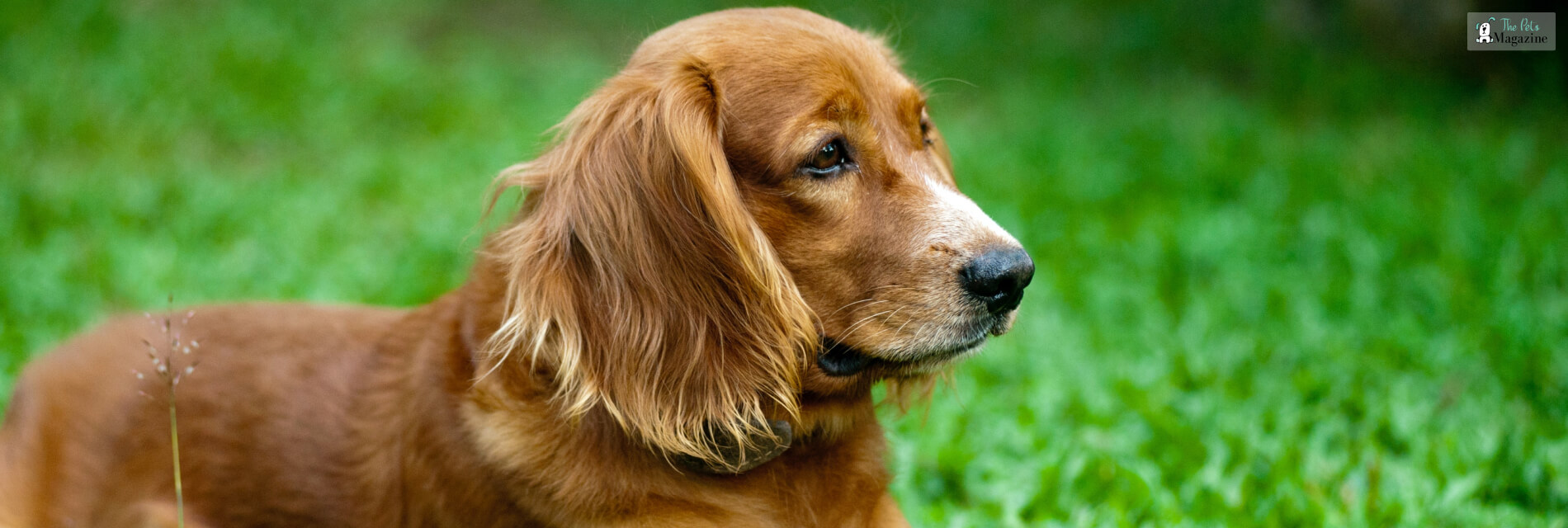
Ever wondered what happens when you cross a Golden Retriever and a Dachshund? You get an adorable mix called the Golden Dox. This spunky hybrid brings you the best of both breeds bundled up in a furry, fun-loving package. If you’re looking for a charming companion to brighten your day, the Golden Dox has everything you need – a playful and energetic temperament, soft golden fur, and adorable looks. They will also lavish you with unconditional love and attention.
So before you start searching for Golden Dox puppies for sale, read on to discover if the Golden Dox is the perfect pooch for you!
Golden Dox Breed Overview
It is not known exactly who first created the Golden Dox by crossing the dachshund with the Golden Retriever. However, it is commonly believed that the breed likely originated sometime in the 1980s. The Golden Dox, also known as the Golden Weenie dog may not have an origin story but the origin and history of its parents’ breeds are well documented. Knowing the history of the parent breeds will help you to understand the temperament and personality of Golden Dox breed.
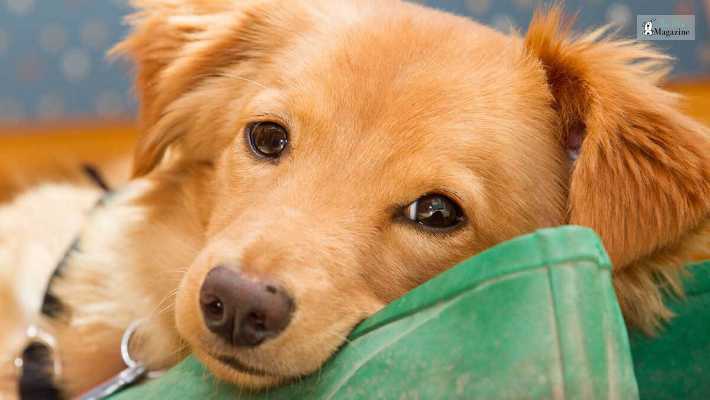
One of its parents, the Golden Retriever hails from the Scottish Highlands where it was originally developed in the mid 19th century to meet the need for a hunting dog that is capable of hunting on both land and water.
The Dachshund on the other hand is a much older breed from Germany. They were bred sometime in the 15th century to hunt badgers and other small animals that lived in underground burrows. Sometimes Dachshunds were also used to track wild boars.
Read on to learn more about the Golden Retriever and Dachshund mix.
Size and Appearance
Just like any designer breed, it is not easy to predict what the Golden Dox puppies will look like. It is especially difficult for a breed like Golden Dox because its parents – the Golden Retriever and the Dachshund vary greatly in terms of size and body structure, temperament, and coat type.
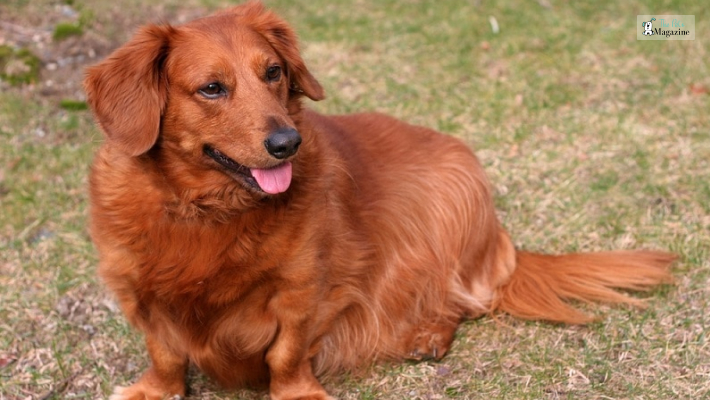
Therefore the appearance of golden dox puppies depends a lot on which parent breeds their genetic makeup leans towards the most. In general, the Golden Dox is a small to medium-sized dog breed with an average height of a full-grown Golden Dox is 10 to 23 inches (25-58 cm) and weighing 30 to 60 pounds (13-27 kg).
The head and facial structure of the Golden Dox is inherited from its Golden Retriever parent. However, its small legs and longer, low-slung body are a contribution from its Dachshund parent. The Golden Dox has muzzles similar to the Dachshund, almond-shaped eyes, black nose, and floppy ears like both of its parents.
Temperament and Personality Traits
The Golden Dox, a mix of the Golden Retriever and Dachshund has a friendly, energetic temperament. Their loyal and social personality makes them ideal family dogs and companions. Golden Dox dogs are playful, gentle, and patient with children and other pets. They love being around people and crave attention, affection, and bonding time with their owners. While the Dachshund parent breed can be stubborn, the Golden Retriever’s friendly nature helps create a Golden Dox that aims to please and is eager to learn new things.

They bond very closely with their families and prefer to be by their side whenever possible. But because of this trait, Golden Dox dogs can develop separation anxiety if left alone for long periods. Crate training, interactive dog toys, and leaving the TV or radio on can help, but they are most content when their people are home.
Lifespan and Health Issues
Golden Dox dogs tend to be healthy hybrids with a lifespan of 10-15 years which is similar to how long dachshunds live. But as with any mixed breed dog, the Golden Dox can inherit health issues from either parent breed. Here are some conditions that you should be aware of before searching for golden dox for sale.

Ear Infections
The Dachshund’s long, floppy ears don’t allow for much airflow and can trap moisture, increasing the risk of ear infections. Check your Golden Dox’s ears regularly and clean them if needed to prevent infection. See a vet right away if you notice any redness, bad odor, excessive scratching, or fluid coming from the ears.
Back Problems
The Dachshund’s long back can make them prone to intervertebral disk disease and spinal injuries. Don’t let your Golden Dox jump from high places, go up and down stairs frequently, or engage in rough play that could aggravate their back. Keep your dog at a healthy weight to avoid extra stress on their spine.
Eye Issues
Some Dachshunds can inherit a congenital eye defect called Distichiasis, in which eyelashes grow in an abnormal location on the eyelid, irritating the eye. Watch for any squinting, excessive tearing, or pawing at the eye which could indicate this condition. Cataracts, glaucoma, and progressive retinal atrophy can also sometimes occur in Dachshunds and may be passed down to the Golden Dox.
Hip Dysplasia
Golden Retrievers are prone to developing hip dysplasia, a malformation of the hip socket that can lead to pain, difficulty walking, and arthritis. Hence you should get your Golden Dox examined by a vet to check for any signs of hip dysplasia. Keeping your dog at a healthy weight and giving joint supplements can help manage symptoms.
By being aware of the potential health issues your Golden Dox may face, and providing proper care, nutrition, and vet checkups, you’ll help keep your mixed breed companion happy and thriving for years to come.
Exercise Requirements
Don’t be fooled by their small size, Golden Dox dogs need daily exercise and outdoor activities to burn off energy and stay happy. Fifteen to thirty minutes of walks twice a day, games of fetch, and puzzles and interactive dog toys can provide mental and physical stimulation. Without it, they may become restless or engage in destructive behavior.

The Golden Dox is an intelligent breed but can also be a bit stubborn sometimes – a trait inherited from its dachshund parent. They also have a short attention span. As a result, training this breed may be slightly difficult.
Some good exercise ideas for golden doxes are:
Scent training:
This is an activity that appeals to both the tracking nature of the dachshund and the retrieving nature of the golden retriever, making this activity ideal for the golden dox. All you need for the activity is something to track/retrieve, preferably a toy or treat, and some patience as you train your pooch in the activity. You can teach the “find it” command, hide the object in different locations, and reward your dog when they find it. Scent training can be done both inside and outside, and it will help your dog use their nose, brain, and body.
Agility training:
This is an activity that involves teaching your dog to navigate various obstacles, such as jumps, tunnels, ramps, and weave poles. Agility training is a great way to improve your dog’s coordination, confidence, and obedience, as well as to have fun with them. You can enroll your dog in an agility class, or set up your own agility course at home or in a park. Agility training can be adapted to suit your dog’s size and ability.
Fetch, frisbee, and tug-of-war:
These are classic games that most dogs love to play, and golden doxes are no exception. These games will help your dog burn off excess energy, strengthen their muscles, and satisfy their prey drive. You can play these games with your dog in your backyard, in a dog park, or in any open space. Make sure to use appropriate toys that are safe and durable for your dog’s mouth.
Dietary Requirements
The energetic Golden Dox requires nutrient-rich food that is specifically designed to meet his age, weight, and activity level. Hence you need to feed your Golden Dox premium quality dog food that is high in protein. Look for a premium kibble for medium breeds with named meat like chicken, beef, or fish as the first ingredient. void dog food brands that contain fillers and artificial preservatives as it can cause digestive problems, bloating, and diarrhea.
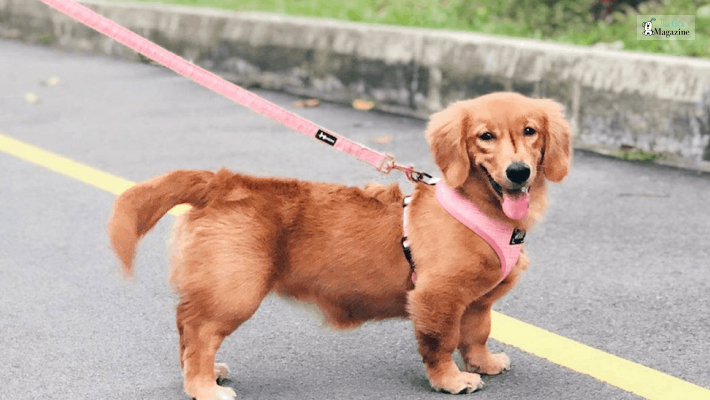
This crossbreed can be prone to weight gain, so measure out portions and stick to a regular feeding schedule. Typical amounts are 1 to 2 cups of kibble per day, split into two meals.
Tips on Training a Golden Dox
The Golden Dox is an intelligent breed but can also be a bit stubborn sometimes – a trait inherited from its dachshund parent. They also have a short attention span. As a result, training this breed may be slightly difficult.
Here are some tips on how to train your golden dox puppy:
Start Early:
The best time to start training your puppy is when he is 8 weeks old. This is when he is most receptive to learning and forming positive associations. You can teach him basic commands like sit, stay, come, and leave it, as well as socialize him with other people and animals.
Use Positive Reinforcement:
Golden doxes respond well to praise, treats, and toys as rewards for good behavior. Avoid using harsh or negative methods like yelling, hitting, or scolding, as they can damage your puppy’s trust and confidence. Instead, ignore or redirect unwanted behavior and reward desired behavior.
Be Consistent And Firm:
Golden doxes can be stubborn and independent, so you need to be clear and consistent with your rules and expectations. Use the same words and gestures for each command, and enforce them every time. Don’t let your puppy get away with breaking the rules, or he will learn that he can manipulate you.
Provide Enough Exercise And Mental Stimulation:
Golden doxes are energetic and intelligent dogs that need at least 60 minutes of physical activity and mental challenge every day. You can take your puppy for walks, play fetch, tug, or hide and seek, or enroll him in agility or obedience classes. This will help him burn off excess energy, prevent boredom, and strengthen your bond.
Socialize Your Puppy:
Golden doxes are friendly and playful dogs that enjoy being around people and other dogs. However, they can also be wary of strangers and small animals, so you need to expose your puppy to different situations, sounds, and sights from an early age. This will help him become more confident and well-adjusted.
Grooming and Maintenance
The Golden Dox is not a hypoallergenic breed. They have a double coat that sheds moderately all year round. The length of their varies between long, short, and medium depending on which parent breed the dog takes after more. The Golden Dox’s coat hair can also be smooth or wavy.

If your Golden Dox takes after its Golden Retriever parent, then it needs to be groomed on a regular basis. Their coat requires frequent brushing and bathing, especially if they take after the Golden Retriever side. You’ll want to brush at least 2-3 times a week to minimize shedding and tangles. Bathe your dog every 4-6 weeks or when they start to smell bad. After bathing them, use a towel or a blow dryer to thoroughly dry their coat.
In addition to brushing and bathing, they will also need other routine grooming. Take them to a vet or groomer for nail trims every month or two, or trim them yourself if you feel comfortable. Their nails should never get so long that they affect their gait or make it uncomfortable to walk. Check their ears regularly for buildup of wax or debris and clean them with a vet-approved ear cleanser and cotton ball. Brush their teeth several times a week to promote good dental health and fresh breath.
Golden Dox: is It the Right Breed for You?
The Golden Dox is not as active as its parent breed – the Golden Retriever, mainly because of its small size. So they make ideal pets for families or individuals who are moderately active. The breed also makes fantastic companions for families with young children as they have a lot of energy packed into a small body. Their small size also means the possibility of the golden dox accidentally hurting small children while playing such as knocking them down or smothering them is quite low.
Since this types of dog is a small to medium-sized dog, it is well-suited to living in apartments. But in that case, the golden dox should be taken on long walks or to the dog park daily so that it gets enough exercise to stay fit.
Advantages and Disadvantages of Having a Golden Dox
It is a Golden Retriever cross with the Dachshund. A designer dog. The kind, however, is of the breed of the Golden Retriever keeping all that this breed is known for- friendly, lovable, while it takes after the Dachshund, but the feisty, spunky type of the Dachshund.
If you want a Golden Dox in your house, then you must know the pros and cons of owning this breed, apart from the right nutrition to ensure that your pet has a long healthy life.
The article will outline the benefits of owning a Golden Dox, their feeding and nutritional needs, as well as which foods to keep off, ensuring healthiness for your animal.
Pros of Owning a Golden Dox
1. Affectionate and Loyal Companions
One of the most prominent qualities of the Golden Dox is its loving nature. They borrow the friendly, gentle, and loyal characteristics from the Golden Retriever.
A dog Golden Dox is excellent for family families who love people in their living room with children, and they typically become attached to owners. They will follow you everywhere in the house and enjoy cuddling so will make great companions.
For a dog lover, who’s looking for an amiable, affectionate, and loving companion, who would quite enjoy the company of family members, Golden Dox is just good.
2. Medium Sized Dog
The Golden Doxes weigh in the range of 20 to 35 pounds, so in the medium size. It is not as big as that Golden Retriever, for instance, who can weigh as much as 70 pounds, nor it is as small as that Dachshund. That puts the scale even lower for little living spaces, such as apartments or small houses with little yards.
This means that average Golden Dox size allows them to adapt better to wide-ranging living conditions. This could either be in an apartment or house with a large yard.
3. Intelligent and Trainable
Both parent breeds, the Golden Retriever and Dachshund, are intelligent breeds. It is, however, particularly noted that the Golden Retriever is one of the most trainable breeds.
Their trainable nature is therefore expected to be passed on to their offspring, the Golden Dox, which makes them quite easy to teach commands and tricks as well as basic obedience.
A golden Dox is easily trainable and therefore an easier option for first-time pet owners. Positive reinforcement seems best suited to them
4. Good With Children And Other Pets
They are great with the children and other pets within the house because of the qualities of sharing that a Golden Retriever is so famous for. They seem friendly and non-aggressive, making them great for a family, but most importantly, they get on very well with other dogs and animals within the household.
Golden Dox are good family pets as they are tolerant to children and playful. Secondly, they get along very well with other pets.
5. Active and Playful
Golden Doxes are playful, energetic, and love to be active. They enjoy walks, playtime in the yard, and engaging in interactive games. This makes them an excellent choice for active individuals or families who want a dog that enjoys spending time outdoors.
If you’re looking for an active dog that will enjoy play sessions, exercise, and outings with you, a Golden Dox could be a good fit.
Cons of a Golden Dox
1. Health Issues
As is the case with all the crossbreed dogs, Golden Doxes will tend to inherit some health conditions from the parent breeds. Some of these include:
- IVDD: Since it comes through the Dachshund line, the Golden Dox can inherit the disease IVDD. IVDD is a problem concerning the spine that creates untold agony and a failure to walk upright.
- Hip Dysplasia: This is one of the most common malformations in Golden Retrievers. The puppy ends up being hurt since their hip joint does not fully develop. It later goes on to suffer from arthritis.
- Obesity: Golden Dox tends to be quite obese if overfed and never exercised. Golden Retrievers and Dachshunds are prone to obesity; therefore, diet and exercise should be monitored.
As a dog owner, you should always prepare yourself for the health problems of the Golden Dox and take proactive measures in availing proper veterinary treatment and regular check-up of their health.
2. Shedding
They are heavy shedders but more seasonal. They are not as bad compared to a Golden Retriever; however, they do need regular grooming to help with their shedding that will aid their coat.
If you are allergic to dog hair or have no time for regular grooming, then you would not like to have a Golden Dox. Prepare the home often for brushing and some shedding around the house.
3. Separation Anxiety
This feature brings about separation anxiety by the retriever if it is taken away for a long time. The feature is very rampant in Golden Retrievers than other retrievers who stick more to the family. Separation for a long time leads to behavioral problems such as chewing, barking, or digging in the case of Golden Doxes.
If you are out of town quite often, the Golden Dox probably isn’t for you unless you can give them sufficient exercise, mental stimulation, and companionship. You will most probably have to make arrangements for dog sitters, daycare, or other ways to keep them occupied while you are away.
4. Obstinance (From the Dachshund Side)
Golden Doxes can indeed be trained; however, they carry with them a few of the Dachshund’s stubborn and independent characteristics. This obstinate streak sometimes makes it a little too stubborn so that you’d get some amount of resistance when your Golden Dox will not learn being house-trained at times.
It might make you a little patient as well because you need to train a Golden Dox in a firmer yet positive way to learn its commands and behave accordingly.
5. High Energy and Exercise Needs
One of their strengths is their energy, which could, however, become a disadvantage if you are not prepared to give them the amount of exercise they need each day. Golden Doxes require regular exercise to maintain fitness and avoid boredom-driven destructive behavior.
This simply means if you want a low energy dog, the Golden Dox is not the dog. It needs daily walks and plays, and mental stimulation as well.
Golden Dox: Costs and Where to Buy?
Before you start searching for Golden Dox for sale, you should know that these puppies cost somewhere around $500 to $1000. However, the exact Golden Dox price will depend on the breeder’s location and experience, the lineage of the puppy, and current market rates in your area. Some breeders may charge slightly higher prices for a “teacup” or a mini Golden Dox, but generally, you’ll be looking at $800-$1,200 for a typical pup.
But before you pay such a substantial amount, you should make sure that you are buying from a responsible Golden Dox breeders USA who follows ethical breeding practices. Here are some tips that will help you to understand if the breeder is responsible or not.
- A responsible breeder will allow you to visit the Kennel where the puppies are kept. They may also allow you to visit the areas where the puppies and their parents spend most of their time.
- An ethical breeder generally practices healthy breeding practices. They do not force the breeding dogs to mate with each other throughout the year. Instead, they conduct the breeding process during the natural mating season in Spring and Fall. As a result, they may not have a litter of pups available for you. So if you are put on a waitlist, then it means that the breeder follows ethical breeding practices.
- The Golden Dox breeder has extensive knowledge about the two parents – the Golden Retriever and the Dachshund. They will be able to answer any question you have about the breed like nutrition requirements, temperament, exercise needs and the like.
- An ethical breeder will be able to provide you with medical records of the parent breeds and health certifications like vaccination, deworming, and any other medical test results and records.
Additional Initial Costs
Don’t forget to budget for essentials like a crate, bed, bowls, collar and leash, grooming tools, training pads or litter box, and high-quality puppy kibble. This can easily add another $200-$500 to your initial investment.
Your new puppy will need to visit the vet for an exam, deworming, vaccinations, and spaying or neutering. Budget at least $200-$500 for initial vet care and essential medical procedures.
Ongoing Costs
As with any dog, Golden Doxes require care, feeding, training, and medical expenses that continue for the lifetime of your pet. Estimate $50-$100 per month for quality dog food and treats, $30-$50 for grooming tools and professional grooming 3-4 times a year, $10-$30 for toys and training, and $200-$500 annually for vet checkups, vaccinations, medications, and other medical care.
However, if don’t want to pay such a huge sum of money, then you can also visit your local rescue shelters and adoption centers to check if they have a Golden Dox for adoption. Golden Retrievers and Dachshunds are two of the most popular dog breeds in the world. So, it is not impossible to find a Golden Retriever-Dachshund mix at rescue shelters.
Final Thoughts
This fun-loving and playful hybrid dog has the perfect mix of traits from its Retriever and Dachshund parents. With a friendly and social temperament, a Golden Dox can make a wonderful addition to any family. While they require daily exercise and a lot of attention, their charming personality and lovable nature make any effort worthwhile.
So if you’re looking for a devoted companion to brighten your day with smiles and laughter, the Golden Dox may just be the perfect pooch for you. What are you waiting for? Start your search for a furry new family member today!







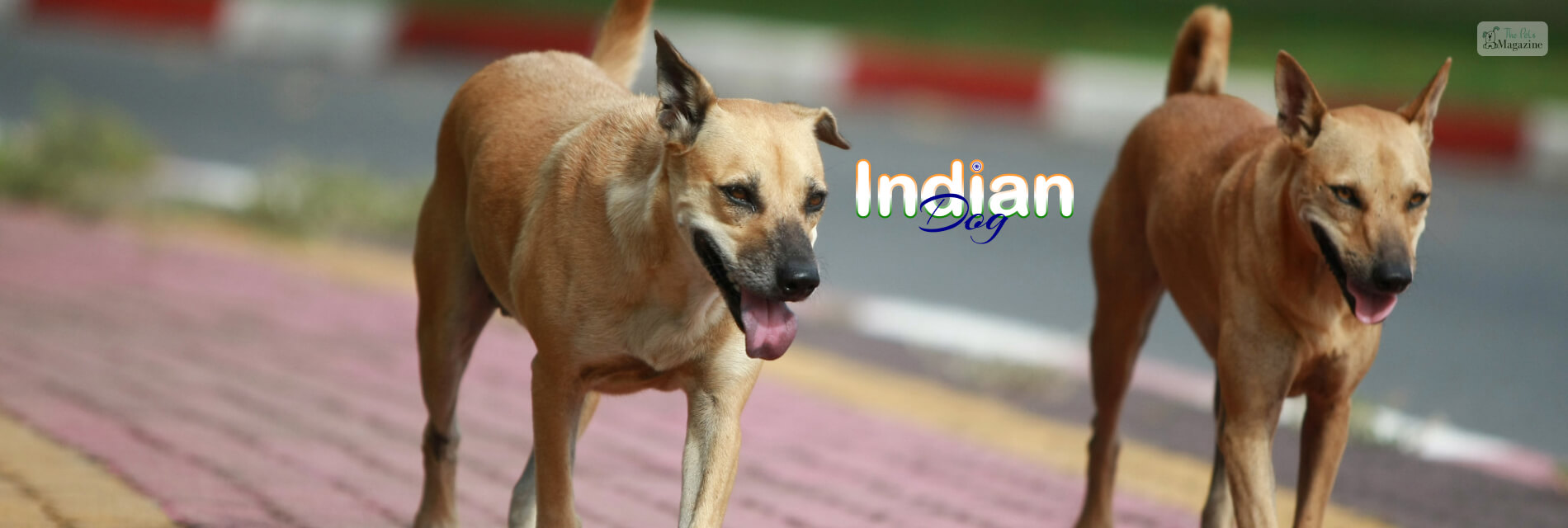

Leave A Comment